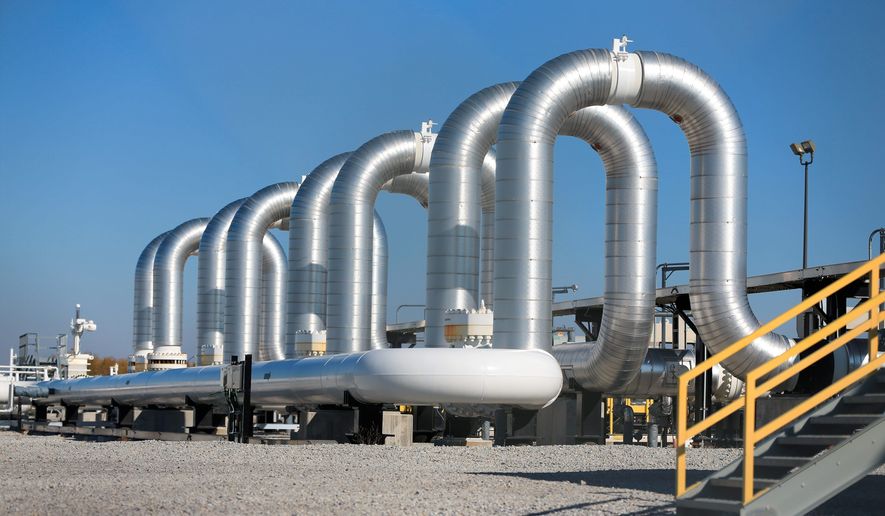Just days after its approval, the Keystone XL oil pipeline already has spawned lawsuits as environmental activists make good on their promise to fight the long-awaited project in court.
The legal challenges, including a federal suit filed Thursday morning, underscore that Keystone still faces an uncertain future despite having gotten the final go-ahead from the Trump administration last week.
The litigation war began earlier this week with a lawsuit from the Indigenous Environmental Network — which also has promised to organize protests and set up camps along the pipeline’s proposed route — and the North Coast Rivers Alliance. The suit claims that the Trump administration failed to look at alternatives to the pipeline, didn’t adequately explain why the project is necessary, failed to examine all environmental impacts and made other errors in its expedited approval process.
“President Trump is breaking established environmental laws and treaties in his efforts to force through the Keystone XL pipeline, [which] would bring carbon-intensive, toxic and corrosive crude oil from the Canadian tar sands, but we are filing suit to fight back,” said Tom Goldtooth, executive director of the Indigenous Environmental Network.
The North Coast Rivers Alliance joined the suit and claimed that Keystone, and the oil it will transport, poses an “unacceptable risk” to the Missouri River and its fisheries.
On Thursday morning the Sierra Club, Natural Resources Defense Council, Center for Biological Diversity and other green groups filed their own lawsuit in federal court in Montana.
In their court filings, the activists argued that the State Department used outdated information in assessing Keystone and failed to truly study the pipeline’s potential impacts on the environment.
“The Keystone XL pipeline is nothing more than a dirty and dangerous proposal [whose] time has passed. It was rightfully rejected by the court of public opinion and President Obama, and now it will be rejected in the court system,” said Michael Brune, executive director of the Sierra Club. “It has never been a question of whether a pipeline will spill, but rather a question of when, and Keystone XL is no different. This tar sands pipeline poses a direct threat to our climate, our clean water, wildlife and thousands of landowners and communities along the route of this dirty and dangerous project, and it must and will be stopped.”
Keystone likely has been the most studied pipeline in American history. There have been numerous studies at both the state and federal levels.
During the Obama administration, a State Department review found the project would not significantly increase North American greenhouse gas emissions. Still, Mr. Obama blocked the pipeline and argued that the U.S. could not lead the world on climate change if it continued promoting the use of fossil fuels.
Business, energy and labor groups praised Mr. Trump’s reversal of his predecessor’s decision, and said Keystone is the most environmentally safe way to transport the fuel.
“By reducing the amount of crude oil currently traveling through our towns and upon our waterways by train, truck and barge, pipelines minimize the potential impacts to our air and water quality,” said James T. Callahan, general president of the International Union of Operating Engineers.
In addition to lawsuits, Keystone also faces other hurdles. The pipeline has no legal route through Nebraska, and state regulators say a decision on the project’s proposed path through the state shouldn’t be expected until September or possibly later.
• Ben Wolfgang can be reached at bwolfgang@washingtontimes.com.




Please read our comment policy before commenting.